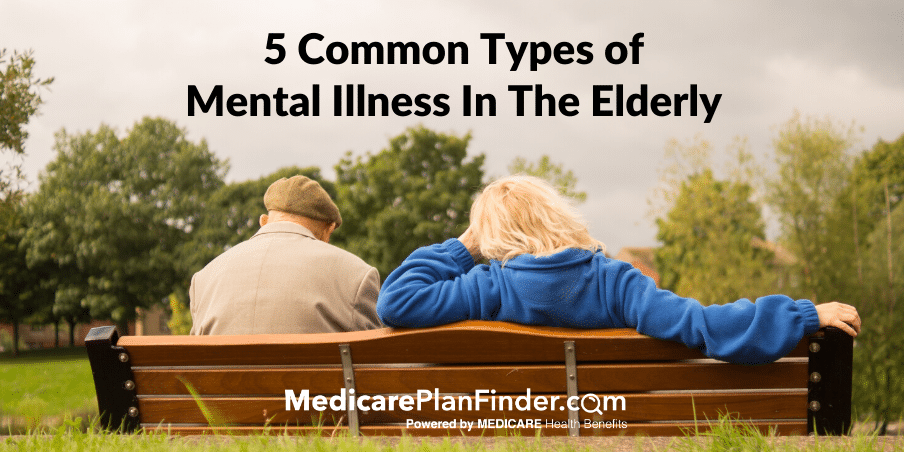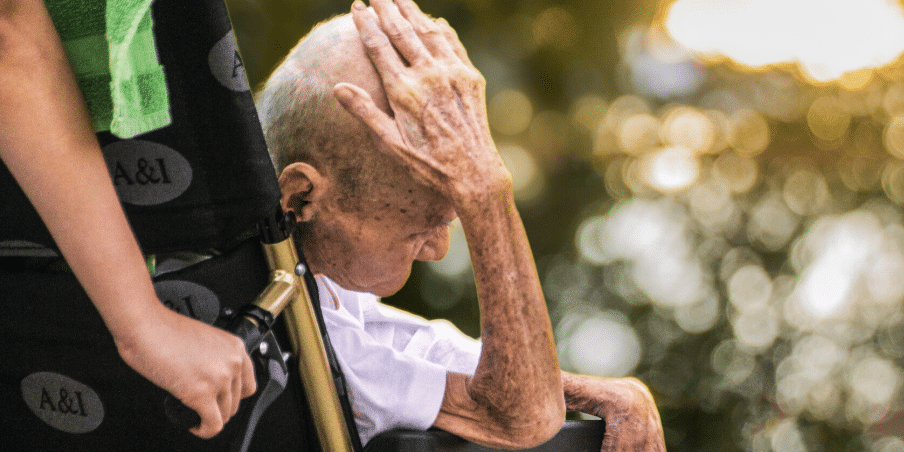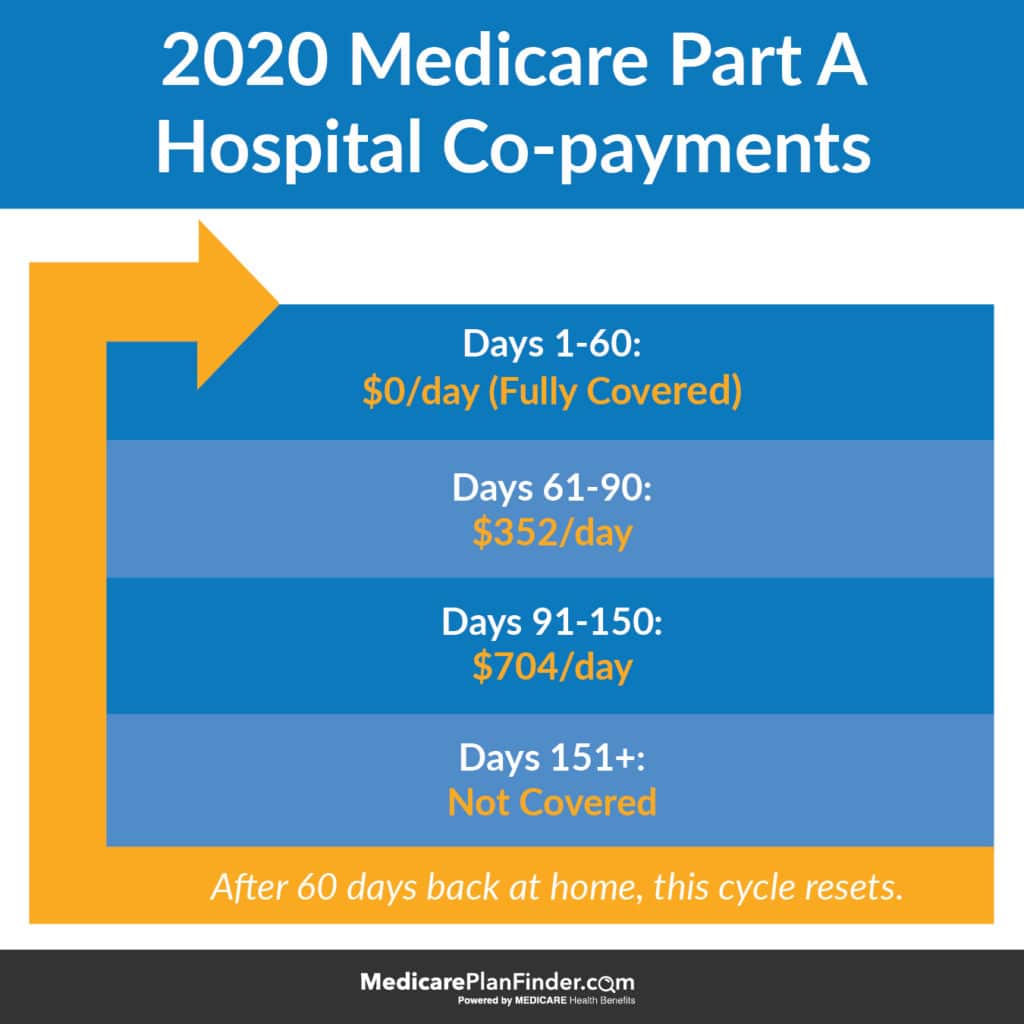
5 Common Types of Mental Illness In The Elderly
December 3, 2019Most of today’s senior citizens grew up in a time when mental illness was almost never discussed in public. Over the years though, the stigma around mental health has largely eroded and conversations about mental health often dominate the national discourse.
As mental illness becomes less taboo, its far-reaching impact on society is coming more into focus. For example, the effects of mental illness in seniors are studied much more closely than ever before.
Common Types of Mental Illness In Seniors

With this more extensive research, it’s easier to see what mental health issues are common in the elderly population. The most prominent issues in senior mental health are:
1. Depression
Depression is often cited as the most endemic mental illness in the elderly population today. Many older adults may shrug depression symptoms off as simply “feeling down,” meaning it often goes undiagnosed and may be even more pervasive than the research suggests.
There are many risk factors that specifically contribute to depression in the elderly. Retiring from work can cause strong feelings of boredom or listlessness, and the death or illness of a spouse can leave many stressed and sorrowful.
Not only can depression exacerbate the symptoms of other chronic health issues, it is also noted as a symptom of more severe mental disorders like dementia. This means seniors and their loved ones must be vigilant in watching for these depression symptoms:
- Feelings of sadness, hopelessness, or emptiness
- Lack of motivation or interest in previously enjoyed activities
- Trouble concentrating and decision making
- Thoughts of suicide or self-harm
2. Anxiety
Anxiety disorders can take many different forms, such as obsessive-compulsive disorder (OCD), panic disorder, or generalized anxiety disorder. These are usually characterized by intense fear or nervousness over issues most would consider normal, routine aspects of everyday life – locking doors or finding a parking spot, for example.
Like depression, anxiety in older adults is extraordinarily common and is often underdiagnosed. Older adults are especially prone to ignoring this illness, perhaps because the conventional medical wisdom of previous decades downplayed psychiatric symptoms if no physical issues existed.
It is important to note however, that some physical symptoms such as restlessness or fatigue may accompany anxiety, further confusing a potential diagnosis. Be on the lookout for these symptoms of anxiety in the elderly:
- Irrational, obsessive, or catastrophic thoughts
- Isolating behavior and withdrawal from others
- Irritability or agitated moods
- Fatigue and muscle soreness
3. Bipolar Disorder
Bipolar disorder is usually diagnosed in younger people, whose moods can swing quickly from elation to depression. If this diagnosis is made when the person is an older adult, it is referred to as late onset bipolar disorder and it is more likely to manifest as agitation.
Diagnosing bipolar disorder in seniors is made even more difficult by the misinterpretation of symptoms. Many of the warning signs of late onset bipolar disorder might be dismissed as simply the natural effects of aging. Furthermore, some symptoms may resemble the side effects of certain medications, like antidepressants and corticosteroids.
As the population steadily increases, the number of cases of late onset bipolar disorder is expected to rise along with it. Professional help should thus be sought if you or those close to you observe any of these bipolar symptoms in adults:
- Agitation and irritability
- Hyperactivity or distractibility
- Loss of memory, judgment, or perception
4. Schizophrenia
Similar to bipolar disorder, schizophrenia is a condition usually diagnosed in younger individuals. Late onset schizophrenia is the terminology used when this disorder is observed in patients over the age of 45.
Schizophrenia is characterized by a broad range of symptoms, from the so-called “negative” symptoms, like loss of interest or enthusiasm in activities, all the way to delusions and hallucinations. While late onset schizophrenia is less common than the early onset variety, older sufferers are more likely to experience these severe symptoms.
Currently, doctors are unsure what causes late onset schizophrenia and why it is different from its other forms. Some have theorized that it is a subtype of the disorder which is triggered by life events. Regardless, it is vitally important that seniors and their loved ones keep an eye out for these late onset schizophrenia symptoms:
- Delusions or hallucinations
- Disorganized speech or behavior
- “Negative” symptoms (absence or lack of interest in normal behaviors)
5. Dementia
Though it is classified separately from mental illnesses by the medical community, dementia is still a disorder that severely affects mental health. There are many different stages and forms of dementia but the most common incarnation is Alzheimer’s disease, which affects around 3 million people over age 65.
Alzheimer’s and other forms of dementia can develop from the natural cognitive decline that happens as we age, drawing a startling link between aging and mental health. All demographics should make mental health a priority but seniors especially should watch for these dementia symptoms:
- Disorientation or confusion (forgetting dates, years etc.)
- Decrease in memory
- Decline in ability to communicate
- Mood swings and emotional issues
Treatment & Medication

Mental illness treatment can be a tricky process and it begins with a proper diagnosis of the condition’s type and cause. To do this, your doctor may administer several different types of tests, from cognitive and psychiatric evaluations to brain scans and lab tests.
Several different mental conditions have symptoms that overlap and make them difficult to diagnose without extensive medical experience. Once the condition is properly diagnosed, a doctor may suggest one of these common forms of mental illness treatment.
Outpatient Care
The most common forms of outpatient mental illness treatment are based around medication or psychotherapy, often used in conjunction. The efficacy of these treatments varies from person to person and sometimes multiple treatment options must be attempted before an effective one is found.
For depression and anxiety disorders, pharmacological methods of treatment usually utilize antidepressants. These can be prescribed in addition or as an alternative to psychotherapeutic approaches like “talk therapy.” The Anxiety and Depression Association of America (ADAA) also suggests regular exercise and a balanced diet as ways of staving off these common mental illnesses, stressing the link between brain and gut health.
The primary medications used in treating bipolar disorder and schizophrenia in seniors are classified as antipsychotics, usually prescribed at a lower dosage than people diagnosed at a younger age. For non-drug treatments of more severe cases, inpatient care is often required for proper rehabilitation.
For the treatment of dementia in the elderly, no cure is currently known. But the symptoms can be managed and the Alzheimer’s Association recommends a non-drug approach before attempting medication. These can begin with something as simple as changing the environment of those with dementia to remove obstacles and promote a general ease of mind.
If these non-drug approaches are not effective, certain types of medications like cholinesterase inhibitors and memantine may be prescribed to temporarily relieve some symptoms. Other approaches may include the use of antidepressants or anxiolytics, depending on the specific behaviors and symptoms that manifest.
Inpatient Care
With the more serious mental illnesses widely seen among seniors, outpatient care may not be an option. Those suffering from bipolar disorder or dementia may not be able to maintain their daily functions on their own and must turn to medical services that can attend to their needs 24 hours a day.
For example, the most common form of therapy for conditions like schizophrenia is a psychosocial approach, where a team of doctors, nurses, social workers and other professionals work in close contact with the patient to monitor their symptoms, both mental and physical, and help them maintain social skills and daily activities.
In these severe cases of mental illness, the accessibility of quality inpatient care has been shown to be a determining factor in recovery. The psychosocial interactions common in inpatient care are now considered to play a necessary role in a comprehensive intervention plan, as isolation can intensify many of the symptoms of these conditions.
What mental health services does Medicare cover?

When faced with one of these potentially life-changing illnesses, it is important to know what exactly is covered by your health insurance. Depending on the condition and its severity, some patients may need an extended stay in a hospital, which can quickly skyrocket the cost of care. Fortunately, Medicare covers many mental health services.
Medicare Part A Coverage
The types of mental health coverage offered differ depending on which elements of Medicare you are covered by. Medicare Part A covers inpatient care, or the medical services you receive while staying in a hospital. The out-of-pocket costs not covered are the same regardless of the type of hospital, general or psychiatric.
Medicare measures your use of hospital facilities using benefit periods. These benefit periods are tallied in increments of 60 days, beginning on the day you’re admitted to a hospital and ending when you haven’t used any hospital services for 60 consecutive days.
If your stay is in a general hospital, there is no limit to the amount of benefit periods Medicare will cover. In a specialized psychiatric facility though, Part A will only pay for up to 190 days of inpatient care during your lifetime.
For further information on how the co-payments break down, check out this handy graphic or see our more in-depth article here.

Medicare Part B Coverage
Medicare Part B will cover most of the cost associated with outpatient mental healthcare. This primarily includes any doctor visits that may relate to your mental health, including appointments with psychiatrists, psychologists, nurses, and social workers.
Therapy and counseling may or may not be covered depending on if the doctor accepts Medicare assignment. Finding a therapist who takes Medicare is now easier than ever, using tailored search tools like the one developed by Psychology Today, available here.
After you meet your Part B deductible, Medicare will cover 80% of their approved amount to the doctor or therapist. This leaves a 20% copay that will have to be paid out-of-pocket. For some, this may still be too expensive and that’s where Medicare Advantage, Supplement, and Part D plans can help!
Medicare Advantage, Supplement & Part D Coverage
There are several types of supplemental coverage that can help pay for Medicare mental health benefits.
Part D plans, for example, offer coverage for prescription drugs which are not covered by original Medicare. For the year of 2020, these plans will have an annual deductible of $435 but, since they are provided by private insurance, there is some variation in the deductible, which may be waived, reduced, or charged upfront.
Medicare Advantage plans, also referred to as Part C, can offer far more benefits than parts A and B alone, including prescription drugs, dental and vision coverage, and group fitness classes tailored to seniors.

Alternately, you may choose to apply for a Medicare Supplement plan, which provides additional financial benefits to help with mental health-related costs like copayments and deductibles. There are up to ten distinct types of Medicare Supplement plans (designated alphabetically from A – N). Each plan may differ in coverage and price.

Whatever supplemental coverage you are looking for, it is best to seek the help of a licensed agent who can fully explain the details of each plan and find one that works best for you or your loved one. To contact one of these professionals directly for free, no-strings-attached information, fill out this form or give us a call at 844-431-1832 and get covered today!

